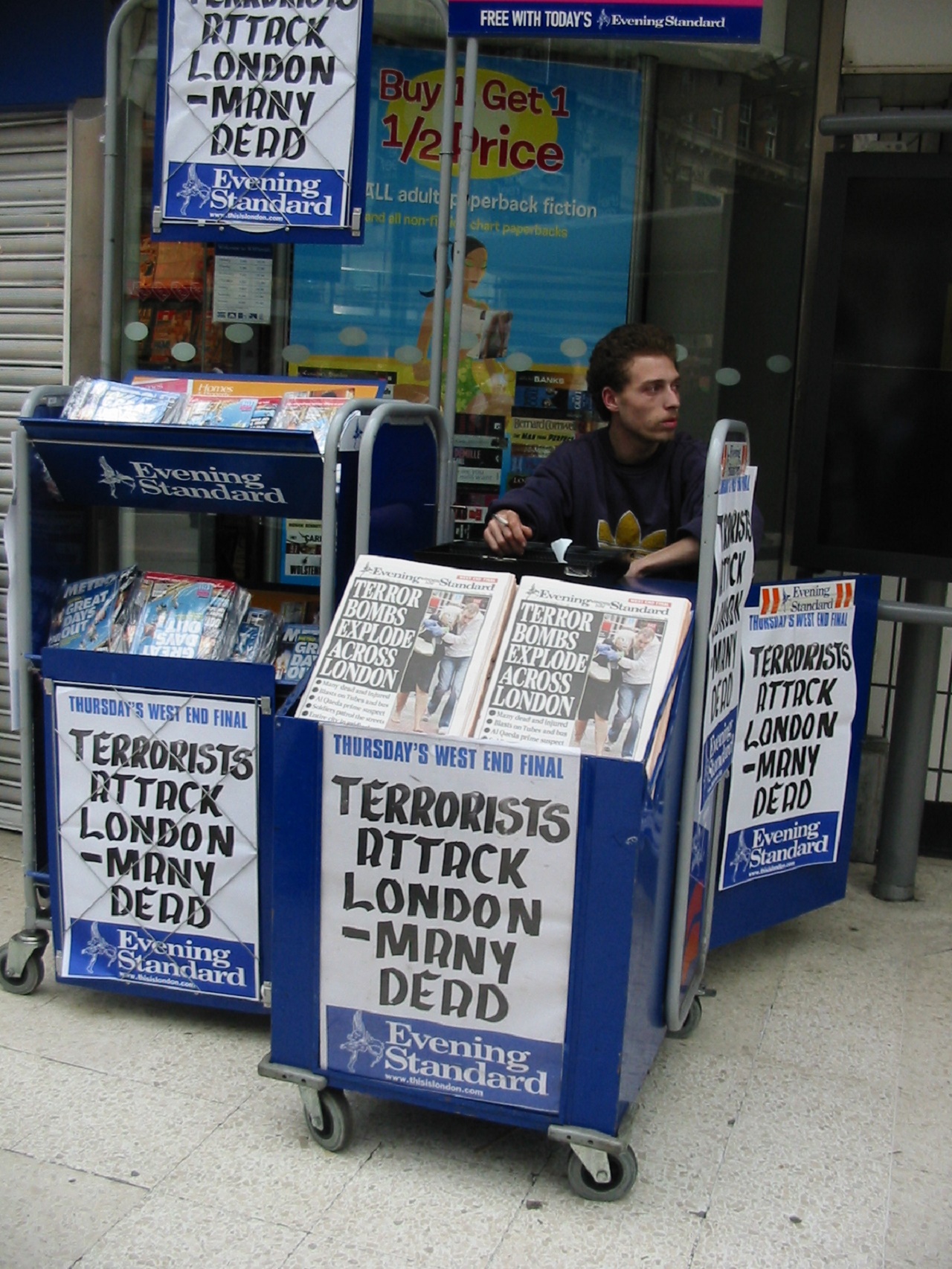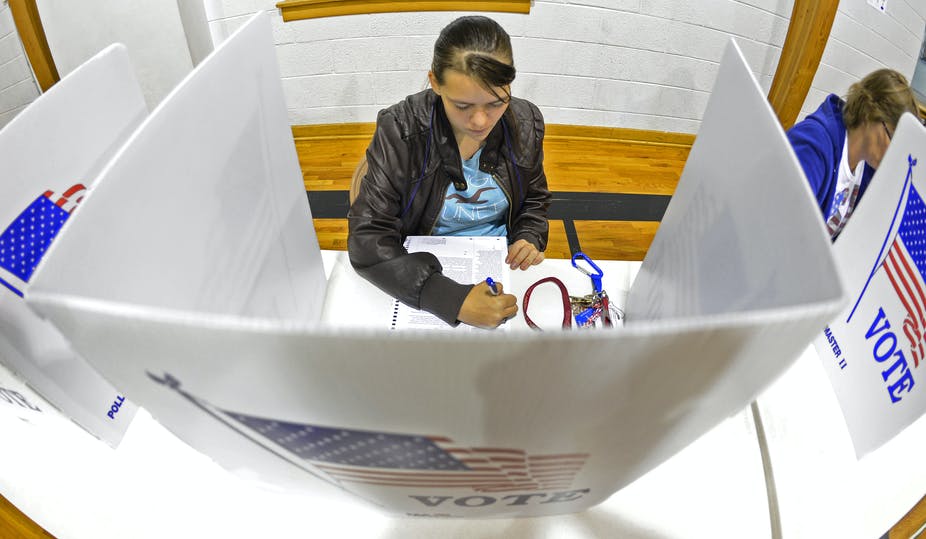Lee Marsden looks back at attempts to reduce terrorism, ten years after 7/7, and suggests that they are seriously wanting.
The horrendous events in London ten years ago today are brought into sharp relief as the nation remembers the greatest loss of life in a single terrorist incident on these shores. The murder of a further thirty British people, among those killed on the beach at Sousse just a few days ago reminds us that terrorism and counter terrorism have become part of our way of life. While there have been a number of terrorist attacks in the United Kingdom during the intervening years the work of the security services have foiled around forty potential attacks. And yet despite the erosion of civil liberties, invasive security checks, and greater state access to our personal information we are seemingly further from defeating terrorism than ever.
Over the past ten years the Islamist threat has morphed from Al Qaeda-inspired/organised terrorism to that perpetrated by Islamic State and those carrying out acts in its name. During that same period successive governments have struggled and failed to come up with a convincing plan to resist an Islamist ideology which lies at the heart of much, but by no means all, of the terrorist violence today. David Cameron’s most recent interventions calling for a ‘full spectrum response’ is indicative of a lack of joined up thinking to one of the key issues of our time. The strategy, as outlined in interviews and speeches since the attack in Tunisia comprises an approach which has profoundly failed to work over the last decade largely because of in-built contradictions.
Depending on which iteration of the strategy is being used there appears to be ten aspects to Cameron’s full spectrum response:
- To work together to build a counter terrorism capacity cross the world (problematic when working with Iran and Hezbollah is disregarded as an option despite them having the greatest capability to defeat Islamic state in Iraq and Syria. This is further compromised by the UK’s close relationship with those Gulf States who have promoted Wahhabi doctrines beyond their own borders).
- To increase police and security service powers to combat online propaganda and the use of social media (although this signals a further erosion of privacy it is sorely needed although Islamic State propaganda is far more adept at successfully using this media than those seeking to counter them)
- To deal with terrorism at its source in place like Syria, Iraq and Libya (this actually means, at this stage, no more than providing logistical support and bombing IS positions in Iraq, although an extension of this campaign could incorporate Syria and Libya. This strategy has manifestly failed because while the bombing campaign has been waged IS have continued to take and hold ground. Where they have been driven back it has been with the involvement of Iranian forces, Shiite militias, Hezbollah, and Kurdish forces on the ground. The bombing campaign championed by Cameron in Libya, toppling the Gaddafi regime, led directly to the current instability and opportunity for Islamist militants to thrive. The postcolonial narrative of western responsibility to do something/anything exacerbates the situation and provides a recruiting sergeant for Islamists to make common cause against the West and its allies in the region and beyond).
- To help strengthen political institutions and tackle instability (the democratisation agenda disappeared with the demise of the Arab Spring. Today, stability is the main game in town, hence British support for the Egyptian regime, which overlooks its human rights record and orchestrated killing of members of the Muslim Brotherhood. Similarly, the Saudi Arabia/Sunni alliance bombing of the Houthis in Yemen passes without censure and actually weakens the Yemeni army providing an opportunity for IS to deepen a foothold that previously did not exist.
- Airstrikes in Iraq against ISIL (these having done little so far to either drive IS out of the territory it occupies or to stop the flow of Islamists leaving Britain to fight in Iraq and Syria).
- Support the formation of a Government of National Accord in Libya (being partly responsible for bringing the country to its present sorry state does not provide Britain with either the leverage or legitimacy to be bring together opposing sides).
- For the BBC and others to stop calling ‘Islamic State’ Islamic State (the arguments for this have been well rehearsed and involve denying that Daesh, IS, ISIS or ISIL are anything other than a perversion of Islam. This was tried under the PREVENT strategy, for a time we were encouraged to stop using terms such a Islamist terrorism and use Al Qaeda-inspired terrorism instead to describe the same phenomenon. Islamic State has gone through several name changes before opting for the current one, and makes claims based on being a caliphate or Islamic State. Short of describing IS as ‘they who cannot be named’ the nomenclature Islamic State is fit for purpose).
- The Muslim Community should do more to condemn and combat terrorism and radicalisation by preventing young Muslims going off to fight and reporting those suspected of being sympathetic to Islamism (the Muslim community can’t win. For propaganda purposes Islamic State is portrayed as having nothing to do with Islam and yet British Muslims are still held accountable for the organisation’s appeal. On one hand it is a Muslim problem to be dealt with by Muslims in alliance with UK security and military forces, on the other, radicalisation in Cameron’s world has nothing to do with British foreign policy or a reaction to Islamophobia).
- In addition to a snooper’s charter the strategy involves universities, colleges, schools, prisons, nursery teachers and NHS Trusts identifying and reporting those deemed (by those reporting) to be vulnerable to radicalisation (it is unclear whether those being reported on are likely to become more or less radicalised by this process).
- The final and most important piece of the strategy is to confront the ‘ISIL ideology’.
The UK is to do this by being ‘intolerant of intolerance’ and through confronting an ideology that ‘stems from an extremist narrative, which hijacks the religion of Islam’. For Cameron ‘this is not the war between Islam and the West that Isil want people to believe. It’s between extremists who want hatred to flourish and the rest of the world who want freedom to prosper’. In the Manichaean world described by Cameron, and Bush before him, the world faces choices between good and evil. Isil evil the West good. The organisation’s actions speak for themselves but in case there were any doubt Cameron uses the familiar lexicon used against fascism , communism, Saddam Hussein, Al Qaeda and now Islamic State. Isil is described as ‘evil’, ‘a poisonous ideology’, a ‘death cult’, an ‘extremist narrative’, it employs ‘propaganda techniques’, an ‘Islamist extremist narrative’ a ‘warped worldview’ and is constantly ‘peddling and plotting’. Given these characteristics how has it been able to recruit so many foreign fighters and so much support for its cause?
It could be that this dualism is a figment of the western imagination, and in particular those of its leaders who seeking to justify the failed policies of the past refuse to recognise any complicity in the current state of affairs from previous action and inaction. Islam is no more a religion of peace than are Judaism or Christianity other than it is constructed so. There are encouragements to do despicable deeds in all the sacred Abrahamic texts. There are texts which encourage the opposite as well. It is the context in which those texts are interpreted which makes all the difference. Islamic State is no more a perversion of Islam than Sufism is and to pretend otherwise undermines credibility. Governments are not equipped to determine what constitutes authentic religion and what does not. Islamic State’s appeal lies not solely in a political message but also in its religious message, using verses from the Qur’an and hadith to encourage its supporters to follow the example of the Prophet and be part of a real-existing Muslim society, living under sharia. The ideological conflict lies in persuading such believers to depart from the scriptural literalism of violent Islamism to embrace an Islam which is contextualised and constructed as the religion of peace. This can only be done through fellow believers and so it behoves those who seek to protect us to reach out to all parts of Muslim communities rather than those deemed acceptable to the government of the day.
On this the tenth anniversary of 7/7 we mourn for those who lost their lives and look to government to forgo a simplistic dualist narrative and recognise the complexities of international terrorism where political ideology, religious belief, community relations and British foreign and domestic policy are all interconnected.
Lee Marsden is Professor of International Relations at the University of East Anglia.
Image credit: Wikipedia





